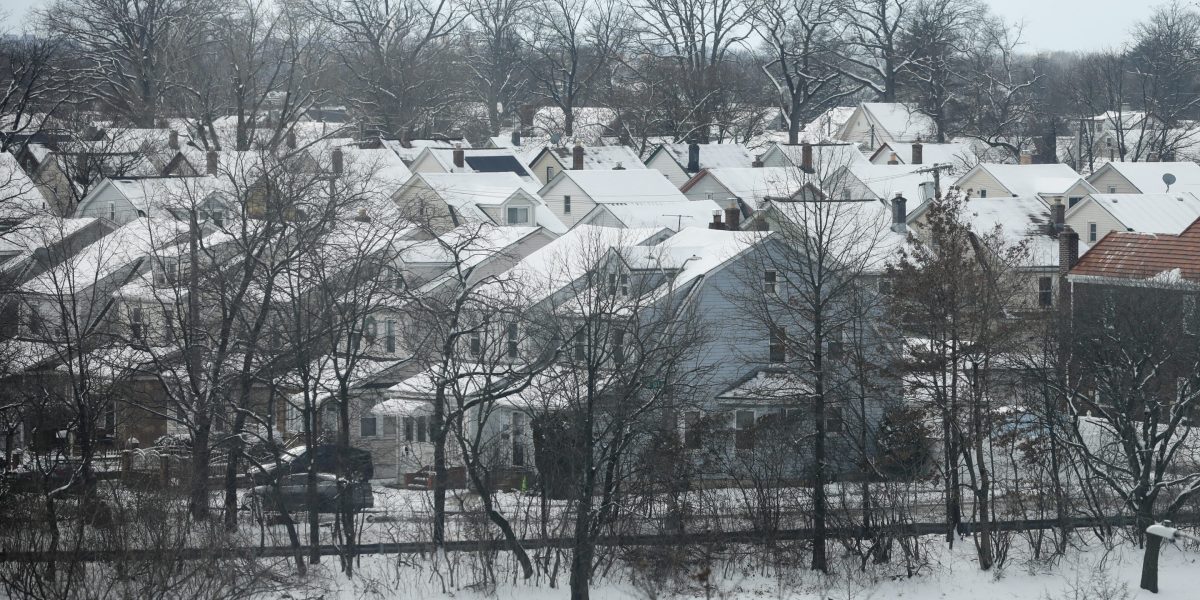Business at hotels, car rentals and shops — even a nail bar — in aid-dependent areas of Kenya has fallen in the weeks since Donald Trump suspended funding to USAID, revealing the extent to which American assistance trickles into the economies of recipient countries.
The fallout from the US president’s 90-day funding suspension has underscored the degree to which healthcare and parts of the economy of Kenya, a regional hub for international aid efforts with a vast NGO sector, have been propped up by American largesse.
A US federal judge last week issued a temporary restraining order challenging Trump’s executive order suspending all foreign aid, but amid uncertainty tens of thousands of Kenyan and foreign relief workers have been placed on unpaid leave.
While some lower-income African countries have been proportionally harder hit, the damage to one of the most consistent US allies on the continent, and what is in some respects one of its most developed countries, has been palpable.
“We just felt it immediately all around us,” said Alie Eleveld, founder of the Safe Water and Aids Project, which manages several projects in Kisumu on Lake Victoria’s shores, where Barack Obama’s Kenyan father hailed from.

Eleveld said businesses in Kisumu have been knocked because of the number of people working in US-funded projects, notably combating endemic AIDS, tuberculosis and malaria.
Hotels were refusing bookings for NGO workers, fearing they wouldn’t be able to settle their bills, Eleveld said. Staff working on US-funded projects had begun pulling children from school, abandoning rental properties and heading elsewhere, she added.
In the capital Nairobi, the effects have also been felt. Alongside the entrepreneurial swagger that has come with a thriving technology and business sector, the city’s position at the heart of regional relief efforts has underpinned its transformation into a cosmopolitan metropolis, spurring growth in the professional class.
Hundreds of expatriate aid workers, either directly or indirectly employed by USAID, are languishing without pay, uncertain about schooling for their children, and in some cases poised to leave the country.
Estate agents are anticipating a dip in rental markets in leafy neighbourhoods of Nairobi, while financial analysts predicted a slight softening in the value of the shilling.
In 2023, the last year for which official data is complete, Kenya received $850mn in US aid, backing more than 230 projects to varying degrees.
Projects in higher education, hospitality training for orphans, drought mitigation and water sanitation, all stalled at the stroke of Trump’s pen. Banks are declining to provide emergency loans, uncertain if the tap will ever be turned back on.
The agency subcontracted a growing proportion of its work to Kenyan organisations, many of which are not equipped to survive three months without core funding.
Hardest hit has been healthcare, which at $402mn received nearly half of the US funding.
According to Dr Ruth Laibon-Masha, who runs the National Syndemic Disease Control Council in Nairobi, 41,500 people working in Aids prevention and treatment and other public health areas were initially impacted.
About 10 per cent have been allowed back to work thanks to a waiver allowing life-saving humanitarian assistance, leaving about 37,000 on unsupported furlough.
Kenyans have been questioning how governments allowed their country to become so vulnerable to US presidential whims.
Laibon-Masha said many of the furloughed Kenyans were highly trained medical staff drawn from the public sector into US programmes such as PEPFAR, the US President’s Emergency Programme for Aids Relief set up under former US president George W Bush.
“Our own capacity was eroded but at that point we did not mind because the healthcare benefits were still coming to us,” she said.
The Kenyan government was given no notice to design local systems of delivery or ensure medium-term supply of life-saving drugs, notably antiretrovirals, Laibon-Masha added.
Trump and his ally Elon Musk have claimed funding to USAID was being wasted, used to push a “radical left” agenda and even being siphoned off by allegedly corrupt officials.
Laibon-Masha said the risks posed by an unforeseen cut off amounted to “a human rights injustice”.

United Nations agencies have been tight-lipped about how they have been affected, amid confusion over the future of their own US funding.
Many UN agencies receive grants from USAID on top of core funding out of Washington. The World Food Programme in Kenya, for example, received £121mn last year, according to official data.
According to a US citizen contracted by USAID, the chaos caused by Trump’s directive has resulted in food aid grown by American farmers spoiling at east African ports, and in some countries a run on ARVs.
Part of the problem was that communications have broken down, he said. Even organisations providing life-saving support, subject to a waiver, have struggled to access funds since USAID was placed under state department control. “We have no idea how to secure that money,” he said.
In the immediate term, government spokesperson Isaac Mwaura said the country was constrained by limited fiscal headroom, with seven of every 10 Kenyan shillings raised domestically paying down its $45bn external debt.
But there were other donors, notably from Scandinavia, willing to step into the breach should Trump’s aid freeze survive ongoing lawsuits in US courts and endure, he said.
In future, however, with the whole multilateral system in doubt, countries such as Kenya would “have to work harder to earn their keep” and recalibrate external relations to ensure they better served the national interest.
“We say we don’t look East. We don’t look West. We look forward,” he said.





